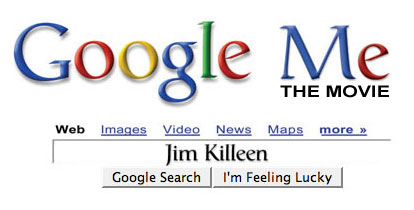If you are an avid reader of Googleverything, I salute you, you are likely one of the first. This is in reference to the fact that this blog is brand spanking new and will often discuss new developments in API, IPOs, and everything Biz.

So what's cooking?
Google is taking on Wikimedia's wikipedia AND at the same time, Wikimedia is taking on Google Search. Controversary? Dyn-o-mite.
Here is some
knol on that and what is sure to be the biggest battle of 2008 outside of telecommunications and social networking...
Google has come up with a more workable alternative to Wikipedia's approach of creating content through anonymous committee. The search giant's new service, Knol, hopes to cover all topics, but unlike Wikipedia, continuous editing and revision by anonymous trolls, wannabes, policy wonks and nit-pickers will not be allowed. And as anyone who has ever been party to a report written by committee can attest, this is a good thing.
Jack Schofield in the Guardian agrees with this assessment, noting that in theory, the thousands of edits "are supposed to improve the original. As a matter of observation, they often make it worse." In fact, Jack makes another valid point, noting that Google didn't attempt to buy another existing online encyclopedia site, instead creating their own -- indicating that those that are already out there "are not doing the job properly."
I've never liked Wikipedia, and wrote about this in my other blog where I suggested that Wikipedia admit that its project is a failed experiment and let it die.
A Wired blog takes the viewpoint that Knol isn't a serious threat to Wikipedia, but brings up an innovative idea -- that being, some publications actually have editors and fact checkers, who enhance the author's and the article's authority with additional verification. Neither Google nor Wikipedia does anything like that.
The Scobleizer sees Knol as somewhat akin to Jason Calcanis' Mahalo, a people-driven search that delivers more accurate results. Although Knol isn't a search engine, it will naturally be tied to search engines, with the obvious goal being for the Knol pages to rank highly in search results on various topics, and preferably above the Wikipedia entries.
Salon's Machinist blog doesn't think that Knol will mean the end of Wikipedia, rather, it will make it stronger, since the Knol articles could, and probably will be, used as authoritative sources for Wikipedia entries.
>>>>Gimmee More! (IT World)











